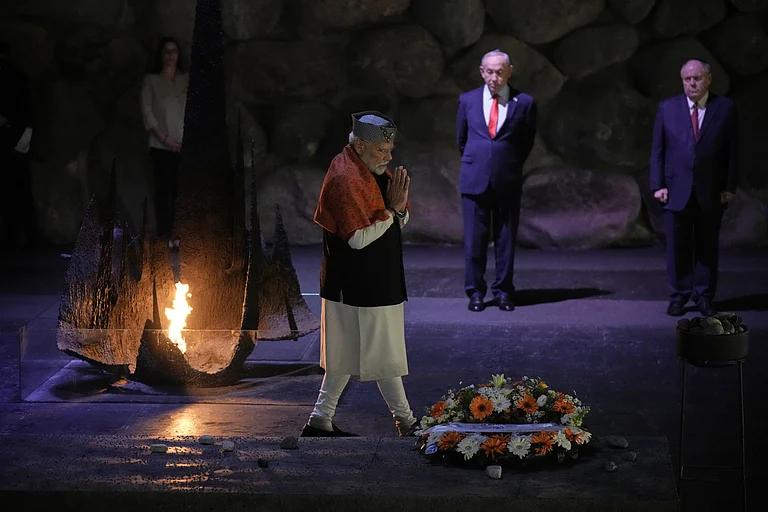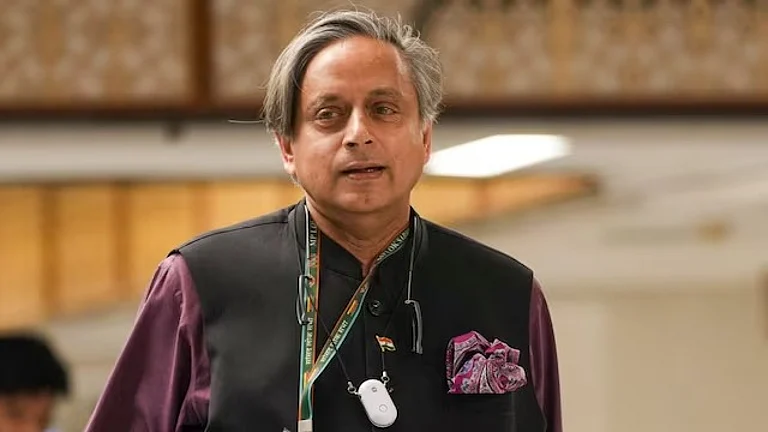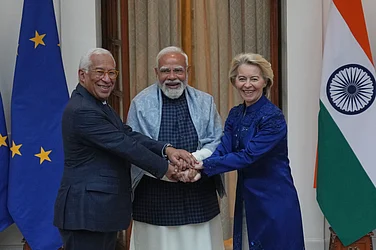On his first visit to China in five years, India's External Affairs Minister S. Jaishankar arrived in Beijing on Monday for a significant trip aimed at repairing the deeply fractured relationship between the two neighboring powers.
The visit is a major step towards normalizing ties, which have been under severe strain since the deadly 2020 military standoff in the Galwan Valley. In a meeting with Chinese Vice President Han Zheng, Mr. Jaishankar called for the “continued normalisation” of the relationship, pointing to the resumption of the Kailash Mansarovar Yatra as a positive development that is “widely appreciated in India.”
Upon his arrival, Jaishankar immediately held a meeting with Chinese Vice President Han Zheng, setting a hopeful tone for his visit. He is also scheduled to hold crucial talks with his Chinese counterpart, Foreign Minister Wang Yi, and will attend a meeting of the Shanghai Cooperation Organisation (SCO) foreign ministers in the city of Tianjin, Mint reported.
Hopes for a 'Positive Trajectory'
In his first official engagement, Jaishankar told Vice President Han Zheng that the relationship between India and China has been steadily improving. He pointed to the meeting between Indian Prime Minister Narendra Modi and Chinese President Xi Jinping in Kazan, Russia, last October as a turning point.
"I am confident that my discussions in this visit will maintain that positive trajectory," Jaishankar said during his opening remarks. He also noted that the two countries are marking the 75th anniversary of their diplomatic relations and that the recent resumption of the Kailash Mansarovar Yatra, a holy pilgrimage for Hindus, is widely appreciated in India.
Highlighting the need for communication, Jaishankar added, "The international situation, as we meet today, is very complex. As neighbouring nations and major economies, an open exchange of views and perspectives between India and China is very important."
Rebuilding Bridges After Border Clash
According to NDTV, Jaishankar's visit is the latest in a series of high-level engagements aimed at rebuilding trust. The 2020 Galwan Valley clash was the worst border conflict between the two nations in over four decades, resulting in the deaths of soldiers on both sides and bringing relations to a historic low.
In recent months, however, there have been signs of a thaw. Both countries completed the disengagement of troops from key face-off points along the Line of Actual Control (LAC) late last year. Jaishankar’s trip follows visits by India’s Defence Minister Rajnath Singh and National Security Advisor Ajit Doval, who were also in China for SCO-related meetings. These interactions are seen as crucial steps to restore dialogue and stability.
Key Issues
Beyond the SCO summit, Jaishankar’s talks with Wang Yi are expected to cover a wide range of important and sensitive issues. The primary focus will be on resolving the long-standing boundary dispute, a process that is expected to gain momentum. Wang Yi is likely to visit India next month to continue these discussions with NSA Ajit Doval, reported Mint.
Other topics on the agenda include China's supply of rare earth materials to India, the resumption of direct flights between the two countries, which were halted during the pandemic, and regional security matters, including recent tensions between India and Pakistan.
The 'Thorn' of the Dalai Lama Succession
According to NDTV reports, just ahead of the visit, the Chinese embassy in New Delhi issued a statement describing the issue of the Dalai Lama's succession as a "thorn" in the relationship.
A spokesperson for the embassy India Yu King said that China expects India to honour its political commitment to recognize Tibet as a part of China and not allow Tibetans in India to engage in political activities against Beijing. This issue remains a point of friction and is likely to be a delicate part of the discussions during Jaishankar's visit.




























